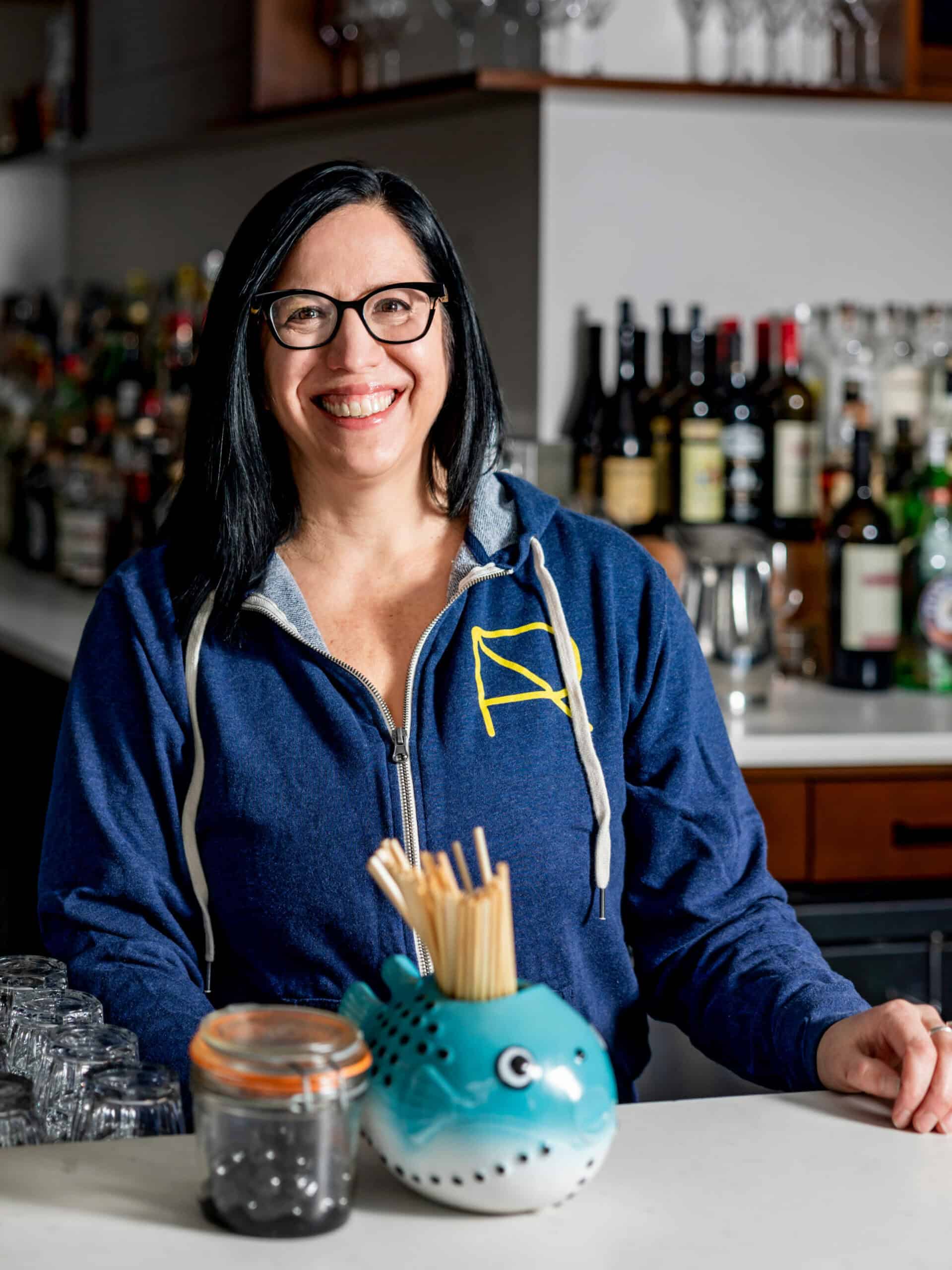
Misty Kalkofen shares tales of her early years working with Ron Cooper, how she helped Del Maguey shape bartender education, important takeaways from mezcal producers, and what she’s excited about now
If you’ve been around the agave spirits industry over the last decade or more, you almost certainly know Misty. She is one of the first people to convey the culture of mezcal to people outside of Mexico, and is rightly recognized for her substantial contributions to the industry at large. She had an impactful tenure working with Del Maguey in the early days, and continues her work today with Suro Imports and Bar 5 Day. She is an author, advocate, Tequila Interchange Project board member, cultural liaison, and so much more. Misty Kalkofen is a fascinating and kind person with an unending desire to learn. She is beloved within the agave spirits community for her bright personality, sharp education, and hospitality skills. It was a joy and pleasure to chat, and peek into what’s behind all that she shares with us.
Where did you grow up?
I was born in Mexico, Missouri, but grew up mostly in Green Bay, Wisconsin.
What was your first job?
I come from a restaurant industry family; my dad and grandfather had their own root beer stand in Missouri. So besides babysitting, my first job was as a busser at a Mexican restaurant called Los Banditos in Green Bay, Wisconsin.
Where and what did you study?
I went to school in Iowa for undergraduate, and I moved out to Boston for graduate school at the Harvard Divinity School in the mid 1990s, where I got a masters in theological studies. In undergrad, I was largely able to build my own curriculum around independent study, including text criticism and liberation theology. I feel super lucky to have been able to do that.
Looking back, does your education inform the way you work with agave?
Shortly after meeting each other, Ron [Cooper] and I would have these long dinners where he would talk to me about the producers and his experience in Oaxaca. It really hit me how connected to ritual mezcal is for the communities who make it, and how deeply it is tied to rituals of the people who enjoy it. You look back at almost any religion and there is an aspect of ritual food and drink involved, which is all super interesting to me and something that really resonated with me and made me want to learn more, especially more about the communities that make mezcal.
What was your introduction to mezcal?
It was one very specific Friday night, and thankfully a very slow Friday night, that I was working at a bar in Cambridge. All the bar seats were full and these two people walked in and sat down at a high top, which the bartenders also serviced. I went over, and one of them said, “We’ll take two tequila cocktails of your choosing.” This was in 2008 and agave had not really gone through any sort of renaissance yet. I was drinking tequila regularly, but mostly people drank margaritas in the summertime, and then put it aside for winter and didn’t come back around to it for 5 de Mayo. That’s where we were as far as agave was concerned. So it got my attention that they were interested in tequila cocktails. I could see him critically scanning my backbar, and that he was taking an interest in what was happening at the bar and on the back bar and it all piqued my curiosity about who this person was.
As seats freed up, they moved to the bar and he started pulling something out of a colorful basket, so I went over and asked him who the hell he was! He introduced himself as Ron Cooper, an importer of mezcal, and said we had a mutual friend (Leo Degroff), who had told him to come see me. I was able to talk with him because it was a slower Friday night, and he started pouring different mezcals; with every bottle, he shared a story about the family and communities making the spirit. I was blown away. I had never tasted a spirit that was as diverse. Of course I’d experienced the nuances that come within a category like Scotch, but whether it’s from Islay or the Highlands you still know its Scotch.
Each of these bottles was so unique from the one before. So rich, so many different expressions and textures. I knew I had never tasted anything like it and I knew I wanted to taste more. Ron came back the following week. He invited me out to dinner, and we sat at an oyster bar and had a discussion about mezcal and ritual and it was the beginning. Within a year he invited me to Oaxaca, which took my interest to an even greater level.
You have a unique history in the agave industry, can you describe your early work?
I was starting to have problems with my joints from bartending and I knew I couldn’t be doing it for much longer. I had to think about my next steps. I didn’t want to be tied to opening a bar and I thought brand work could be a good option, but I have a terrible poker face so I knew I had to work for brands I believed in. I went to Ron three years before he hired me and told him, I know you’re not there yet, but when you are ready to hire someone I want it to be me. He said OK, and we kept in touch and checked in every six months or so.
About a year before he hired me, Del Maguey hired Ryan Fitzgerald in San Francisco, and I understood. California is the biggest and most competitive market for agave spirits so it made sense to have their first brand advocate there. But Ron assured me that I would be next. About six months later, I got this package in the mail with four small bottles of mezcal and a handwritten note that said to write tasting notes for them. It definitely felt like a test so I knew we were getting close!
A few months later I was hired as a Del Maguey brand ambassador. Ryan and I split the country for about six months before he got an opportunity to open ABV. When Ryan left, I suggested I do the job on my own and get a feel for what was happening across the country. I ended up being the ambassador for the entire country for a year, which was intense but super rewarding! I was on the road almost every week, but it helped me get a better understanding of the markets where the category already had a foothold and the markets where not many knew about mezcal– but those who were familiar were very excited about it. All of this helped us develop a plan, and my role evolved into focusing on education and driving brand and category awareness. I realized that education was so important; even among the people who thought they knew about mezcal, so much information was incorrect and from inaccurate sources.
Because mezcal has largely unfamiliar flavors and is so complex, the education had to be multi-layered. We needed to provide education around the production process so that consumers would understand where those flavors came from, and it needed to be placed in a historical context so they would also understand the mezcal’s important connection to culture. But because mezcal was so unknown, we also had to train the trade on how to introduce mezcal to a guest who had never tried before.
What questions can a bartender ask to increase their chances of being successful in choosing a mezcal that a new-to-the-category guest is going to enjoy? Nine times out of 10, a bartender’s favorite mezcal will not be the best one for the guest who has never tried mezcal before. The focus was on teaching bartenders what mezcal is and also how to introduce it to their customers.
I developed training programs for ambassadors and bartenders. From there, I leaned into immersive educational experiences. For me personally, it didn’t feel like I truly understood mezcal until I saw where and how it was made, until I had the opportunity to experience it with all of my senses. I recognized the importance of bartenders having that experience as something they would take with them forever and become ambassadors for the brand and also the category.
Our brand trips were unique in that they were not what people had in mind necessarily when compared to other brand trips. It wasn’t about fancy accommodations and five star restaurants. The priority was spending as much time as possible with the producers. In my opinion, our guests were getting the best meals in Oaxaca, they just happened to be in the homes of the producers. It’s a very special experience spending time in the homes of producers and sharing a meal with them. We were very thoughtful about the people who we brought. We prioritized people who already showed they supported the brand, which was also a different approach than other brands. We wanted the trip to be a “thank you” for people who already believed in and showed loyalty to the brand; it was a way to take that relationship to the next level. Many people I took down on the trips are now working in the mezcal category, and they tell me that experience with me is what led them to their work. It is a nice validation that we were doing it right.
What is your involvement with agave now?
I am currently working with Suro Imports, which is such a beautiful portfolio focusing on family owned brands. It’s a diverse portfolio that includes rum and ponches in addition to tequila and mezcal, so I really get to talk about bebidas mexicanas. It is pretty rare that I talk to someone that is familiar with the full portfolio, so I love being able to introduce folks to new-to-them spirits and continue to educate about the rich diversity of the spirit landscape in Mexico.
As of last year, I took over leading the agave education for BAR 5 Day, so that has been really exciting for me. The students at BAR 5 Day are so motivated, so you know you are presenting to future industry leaders. For me there is a huge responsibility to make sure we are providing a holistic non-branded education of agave spirits, including the challenges that are being faced. Last year we presented a flight of which 90-95% of the spirits were unknown to the majority of the people in the room. Introducing the diversity of agave spirits to the people who are going to be decision makers in the coming years is super important. They are going to be our industry leaders and I want them to know that there is more than what the marketing is telling them.
Who have been most influential on your mezcal journey?
I’m so thankful, I’ve had a lot of great mentors. From my first to Oaxaca with Ron in 2009, he was so great about setting me up for success when spending time with the families; knowing what to expect and what proper behavior was when you walk into a room and are being greeted by a family…where to insert yourself and where it’s not your space, which was such an important part of my introduction to mezcal. It’s not just the juice itself, but a culturally appropriate introduction as well. Because of the amount of time he spent with the families–he had already been working with them for around 15 years at that time–he had learned a lot about being here as an outsider. I’m super grateful that was my introduction, with someone who was so thoughtful about how he moved within the communities. Especially now…as I am seeing what’s happening within the industry.
David Suro is another one. My introduction to David was through Phil Ward when David was starting the Tequila Interchange Project (TIP). David invited me to be a part of the first TIP trip and he asked me to be part of the board. My intro to David was focused on tequila, but through him I’ve met so many people that have helped to broaden my understanding of agave spirits beyond tequila and beyond the spirits of Oaxaca, and I’m so thankful about that. He is so generous with his connections and knowledge and through him I’ve been able to connect with academics to learn more about history, botany, ecology, etc. Those connections have enriched my knowledge beyond just production, so I’ve been able to bring so much more to the trade who can then share that knowledge with guests.
Pedro Jimenez is a mentor as well. I think the way that he works with his producers and in their communities has set an amazing example for me (and the industry) about what is important in all of this, that traditional knowledge and language is closely tied to ecological and environmental preservation and so all need to be respected, cared for and nurtured equally.
I wake up every day knowing there is so much more I have to learn. You could study agave spirits your entire life and never learn everything because of the diversity of what there is in Mexico. Every producer has their own style and every community with their own traditions. I am constantly learning and each of the people who are willing to share information have been a mentor to me in their own way, even if it is for a short time.
Any favorite lessons you’ve learned from mezcal producing communities?
Espiridion in Albarradas–the joy he lived every day with is something I think about all the time. Even when he was doing some of the hardest work I’ve ever seen, he did it with so much joy and so much pride, and I think that is so important. Another important lesson is the way the communities work with the resources they have, using them to the fullest. It forced me to really look at how we live here in the US, how as a society we always want the newest thing even when it is not necessary and the unnecessary waste we create because of this. It has definitely changed how I move in the world and what I think about with the things that I purchase. That’s a big lesson that has changed how I work.
What’s on the horizon, what are you excited about when looking forward?
I’m very excited that the Tequila Interchange Project is active again! We have Francisco Terrazas as our new executive director and a new diverse board of directors. It has always been an organization dedicated to building bridges between communities and disciplines so I’m very excited to see what the next year brings.

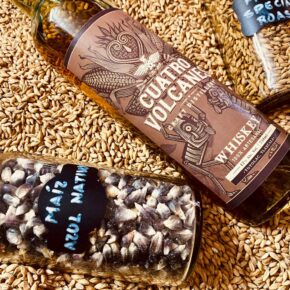
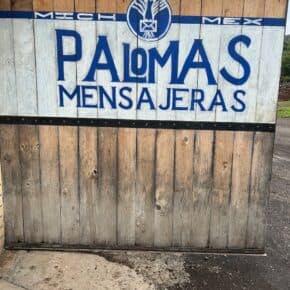
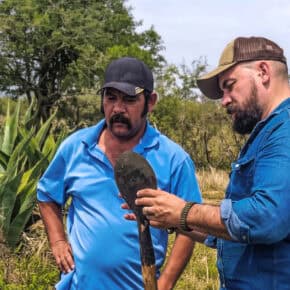
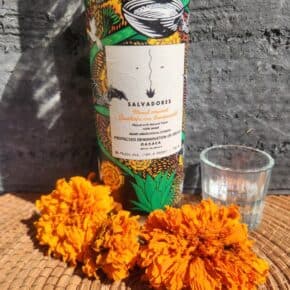







Leave a Comment